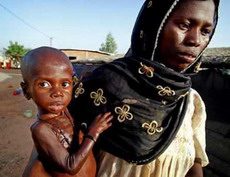To mark the end of the first United Nations Decade for the Eradication
of Poverty, the Division of Social Policy and Development, DESA,
in collaboration with United Nations agencies and civil society, is
organising the International Forum on the Eradication of Poverty.
The Forum aims to achieve two major objectives. First, it is intended
to send a strong message on the importance of a continued and enhanced
commitment to poverty eradication in the run-up to 2015. Second,
the Forum will provide a valuable opportunity for forward-looking
dialogue among stakeholders on the next steps over the next decade
towards the realization of the universal goal of poverty eradication.
As the closing event of the first United Nations decade for the
eradication of poverty, the Forum will need to address the key
developments in policy and practice of the last ten years. However,
the main purpose of the Forum is not to reflect on the past but
to look forward in order to identify the main challenges ahead
and the concrete and sustainable strategies to combat poverty in
its various dimensions over the next ten years.
The Forum is an interagency initiative that will be held on 15 and
16 November 2006 at
United Nations Headquarters. It will consist of a series of h igh-level
panels and dialogues as well as lunch time events on a variety of topics
central to poverty eradication, including the root causes of poverty
and effective measures to address them. Panellists will include high-level
representatives from Government, multilateral international organizations,
academia, civil society, the private sector and other stakeholders in
particular people living in poverty. Forum participants will include
delegates, United Nations staff, donor agencies, representatives of civil
society, academics and the media. The event is to be as inclusive as
possible and donor agencies and civil society organizations are encouraged
to sponsor the participation of people from developing countries.
Following an opening session, the first plenary session is envisaged to take
the form of a dialogue with speakers responding to probing questions posed
by the moderator. A main theme of this dialogue will be the commitments that
were made throughout the Decade. The various panels taking place after the
opening session are all related to the concept of poverty traps and address
the factors needed to escape from them. The panels will not focus on sectoral
issues, but will discuss cross-cutting issues fundamental to the eradication
of poverty. Since poverty is both an economic and a social problem, this will
necessarily involve discussing not only issues such as access to resources,
trade and education, but also human rights and governance. Specific issues
pertaining to the various social groups, including women, youth, the elderly,
persons with disabilities and indigenous peoples will be discussed in many
if not all panels. The common thread running through the panels is implementation
and sustainability. The planned lunchtime events will focus on concrete initiatives
such as the Millennium Villages Project.
Participants in the panels and roundtables will include Government officials,
heads of various multilateral international organizations, academics and other
experts, civil society and other stakeholders.
The United Nations partner organizations currently collaborating to organize
this Forum are:
Other collaborating organizations include:
|


